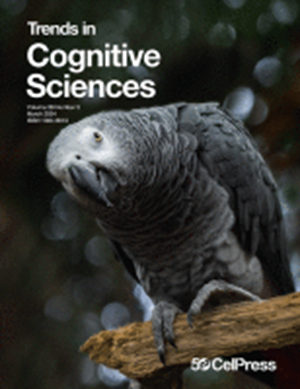The affective gradient hypothesis: an affect-centered account of motivated behavior
IF 16.7
1区 心理学
Q1 BEHAVIORAL SCIENCES
引用次数: 0
Abstract
Everyone agrees that feelings and actions are intertwined, but cannot agree how. According to dominant models, actions are directed by estimates of value and these values shape or are shaped by affect. I propose instead that affect is the only form of value that drives actions. Our mind constantly represents potential future states and how they would make us feel. These states collectively form a gradient reflecting feelings we could experience depending on actions we take. Motivated behavior reflects the process of traversing this affective gradient, towards desirable states and away from undesirable ones. This affective gradient hypothesis solves the puzzle of where values and goals come from, and offers a parsimonious account of apparent conflicts between emotion and cognition.情感梯度假说:以情感为中心的动机行为解释
每个人都同意情感和行动是相互交织的,但却无法就如何交织达成一致。根据主流模式,行动受价值估计的指导,而这些价值形成或被情感所形成。而我认为,情感是驱动行动的唯一价值形式。我们的大脑不断呈现潜在的未来状态,以及这些状态会给我们带来怎样的感受。这些状态共同形成了一个梯度,反映了我们根据所采取的行动可能体验到的感受。动机行为反映了穿越这种情感梯度的过程,即走向理想状态,远离不理想状态。这种情感梯度假说解决了价值观和目标从何而来的难题,并为情感与认知之间的明显冲突提供了一个合理的解释。
本文章由计算机程序翻译,如有差异,请以英文原文为准。
求助全文
约1分钟内获得全文
求助全文
来源期刊

Trends in Cognitive Sciences
医学-行为科学
CiteScore
27.90
自引率
1.50%
发文量
156
审稿时长
6-12 weeks
期刊介绍:
Essential reading for those working directly in the cognitive sciences or in related specialist areas, Trends in Cognitive Sciences provides an instant overview of current thinking for scientists, students and teachers who want to keep up with the latest developments in the cognitive sciences. The journal brings together research in psychology, artificial intelligence, linguistics, philosophy, computer science and neuroscience. Trends in Cognitive Sciences provides a platform for the interaction of these disciplines and the evolution of cognitive science as an independent field of study.
 求助内容:
求助内容: 应助结果提醒方式:
应助结果提醒方式:


